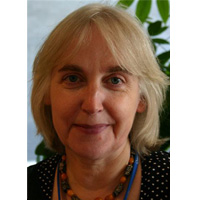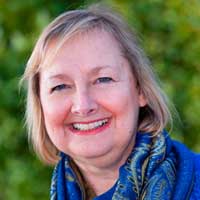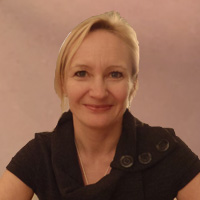Communication Impairments Part 1: Late-talking Toddlers and Specific Language Impairment course


This session is the first of four which describe different speech, language and communication impairments. The focus of this session is children who are identified at two years of age as being late talkers and who continue to show persisting and often severe speech, language and communication difficulties in the absence of any obvious sensory, physiological, neurological or emotional cause, and which are not associated with any developmental syndrome or general learning difficulties.
Learning objectives
By the end of this session you will be able to:
- Distinguish between late talkers and late bloomers
- Identify the risk factors associated with late talkers
- Define what is meant by the term ‘Developmental Language Disorder’
- Identify when it may be appropriate to refer a child to a speech and language therapist, an audiologist, or the child development team for multi-professional assessment
- Explain how to access the key agencies providing advice and support for parents of children with speech, language and communication difficulties
This session is the first of four sessions that explore atypical speech, language and communication development.
Before commencing this session you should complete sessions:
- Speech, language and communication needs/Child as listener and speaker part 1: non-verbal aspects of communication (402-0034)
- Speech, language and communication needs/Child as listener and speaker part 2: verbal aspects of communication (402-0010)
Sally is a Senior Lecturer in clinical linguistics and phonetics on the BSc (Hons) programme in Speech and Language Therapy at the University of St Mark and St John.
She is a dual-trained phonetician and speech and language therapist (SLT). Sally’s PhD was in acoustic phonetics and she has subsequently developed a web-based self-study resource in phonetic transcription and co-authored two clinical assessments for disordered speech production.
Sally has practised as a paediatric community clinician and a specialist SLT in a language unit for children with developmental language disorder. She also worked for the North Prospect Sure Start Lark Project developing resources to promote good parent-child interaction and early language skills and as a freelance assessor on the Children’s Workforce Development Council award of Early Years Professional Status. Her research interests include speech sound disorder and the relationship between speech perception, phonological awareness and early literacy development.


Jocelynne Watson practiced clinically as a Speech and Language Therapist in community paediatrics with a special interest in literacy before joining the Speech and Hearing Sciences Division at Queen Margaret University, Edinburgh as Clinical Director. Jocelynne also has a background in Psychology and is currently Visiting Professor in Speech and Language Therapy at Marjon, Plymouth. Her research interests include the effectiveness of computers in intervention, clinical vowel systems, the relationship between speech perception and production and, as a founder member of the Specific Language Impairment Consortium (SLIC), the links between genetics and communication.
Maggie Cooper is a former Head of the Department of Applied Language Sciences at the University St Mark and St John, Plymouth and Programme Lead for the BSc Speech and Language Therapy, the only NHS commissioned SLT education in the South West region.
Before taking up her academic career, Maggie spent more than 20 years in clinical practice as a speech and language therapist and part-time researcher. Her professional expertise is with early language acquisition and much of her clinical experience was situated in communities challenged by extreme social disadvantage. Maggie’s years as a clinician informed her research interests in early word learning and its relationship to maternal sensitivity, and previously in exploring alternative and innovative models of service delivery to meet the needs of inaccessible communities. Maggie was involved in the early Sure Start initiatives as co-author of one of the trailblazer bids and Executive Director of one of the first projects in the country, situated in Plymouth.


Alice qualified from Reading University as a speech and language therapist (SLT) in 1990 and worked in Cambridge, first as a paediatric SLT and then as a community development leader with 0-5-year-olds and their families.
After moving to Devon in 2001, Alice has focussed on early years work as the SLT for a Plymouth Sure Start. She now runs training across Plymouth for early years practitioners, child minders, children’s centres, health visitors, midwives and on SLT and foundation degree courses.
Alice always works in collaboration with other agencies to deliver and embed training and has developed particular interests in ante natal sessions and those with parents and babies, focussing on attachment and early communication. Her team’s work in Plymouth is one of six case studies in the national Talk To Your Baby guidance paper.
- Child as Listener and Speaker Part 2: Verbal Aspec...
- Posted By eIntegrity Healthcare e-Learning
- Posted Date: 2024-12-23
- Location:Online
- This is the second of two sessions which describe the language processing system and the challenges ...
- Child as Listener and Speaker Part 1: Non-verbal A...
- Posted By eIntegrity Healthcare e-Learning
- Posted Date: 2024-12-23
- Location:Online
- This session is the first of two which describe the skills and knowledge that underpin the understan...
- Child Mental Health: Getting a Good Start course
- Posted By eIntegrity Healthcare e-Learning
- Posted Date: 2024-12-23
- Location:Online
- This session will outline the factors in the first 5 years of life that contribute to the developmen...
- Fantastic Twos - Common Behavioural and Emotional ...
- Posted By eIntegrity Healthcare e-Learning
- Posted Date: 2024-12-23
- Location:Online
- This session covers some of the behavioural problems which can result from poor mental health in pre...
- Communication Impairments Part 4: Autistic Spectru...
- Posted By eIntegrity Healthcare e-Learning
- Posted Date: 2024-12-23
- Location:Online
- This session is the last of four that looks at different speech, language and communication impairme...








